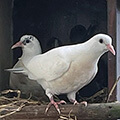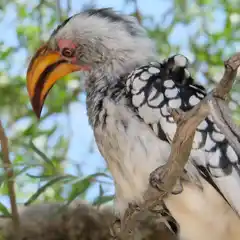







New vaccines and interventions for coccidiosis, caused by Eimeria parasites, are needed to sustain an increasing global poultry industry. However considerable variability in response to Eimeria infection is observed in infection models used to evaluate new treatments. This study aimed to examine MHC B locus genotypes, a potential contributor to variability in Eimeria infection response, in commercial layer chickens which are poorly characterised compared with inbred lines. Three studies have been undertaken examining in-vivo response to Eimeria tenella infection. The first study compared different E. tenella oocyst doses in three commercial layer lines which demonstrated considerable individual variability in response to infection in terms of caecal lesion scores, caecal parasite genome copy and caecal cytokine expression. However, there was no significant difference in responses observed between the three-layer lines evaluated. Genomic DNA from these chickens has been submitted for MHC genotyping, results of which are pending as a result of delays from the COVID19 pandemic. The subsequent two studies, which formed part of larger vaccine studies, examined one commercial layer line, Hy-line brown layers, challenged with a high dose (4000 oocysts) and unchallenged controls. Considerable variability in response to infection was also observed for infected chickens in these studies. Genomic DNA from these studies has been stored and will be submitted for MHC Class B genotyping pending results of study 1. Examination of both intra- and inter-breed haplotype diversity will be conducted and potential associations with E. tenella infection outcome examined once genetic data is available.
Return to the Grants Awarded page.